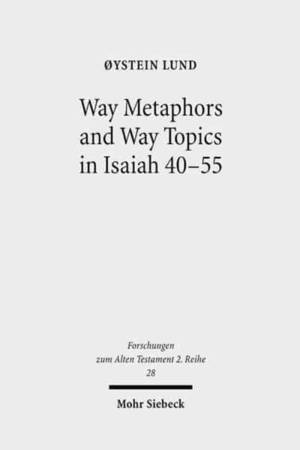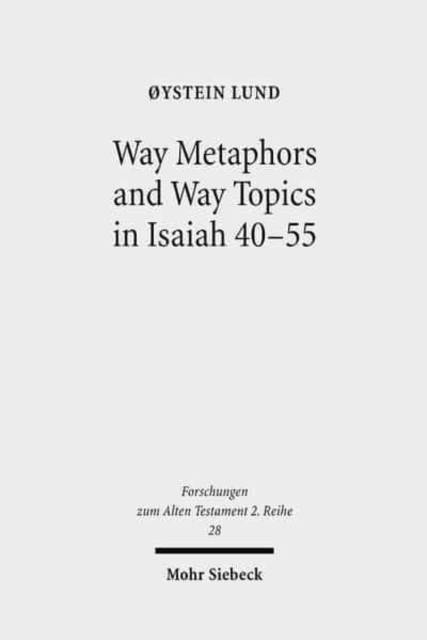
- Afhalen na 1 uur in een winkel met voorraad
- Gratis thuislevering in België vanaf € 30
- Ruim aanbod met 7 miljoen producten
- Afhalen na 1 uur in een winkel met voorraad
- Gratis thuislevering in België vanaf € 30
- Ruim aanbod met 7 miljoen producten
Zoeken
Omschrijving
Oystein Lund gives a new approach to texts in Isaiah 40-55 that deal with ways and desert transformation. Earlier exegesis has mainly read these texts in a literal way. In recent years, exegetes have pointed out that the so-called 'exodus texts' should rather be interpreted metaphorically. The author supports this, and accordingly seeks to continue this discourse by systematizing, intensifying, and deepening the argumentation for a metaphorical reading. He argues that most of the way-texts in Isaiah 40-55 are interrelated, and gradually contribute to explore questions regarding the way-situation of the people. Several subsequent way-texts are related to this text, and together these draw a coherent picture in which the problematic way-situation of the people in the past and present is transformed. The author argues that such a coherent reading of the way-texts gives good meaning, which is consistent with the over all message of Isaiah 40-55.
Specificaties
Betrokkenen
- Auteur(s):
- Uitgeverij:
Inhoud
- Aantal bladzijden:
- 346
- Taal:
- Engels
- Reeks:
- Reeksnummer:
- nr. 28
Eigenschappen
- Productcode (EAN):
- 9783161490873
- Verschijningsdatum:
- 1/01/2008
- Uitvoering:
- Paperback
- Formaat:
- Trade paperback (VS)
- Afmetingen:
- 153 mm x 229 mm
- Gewicht:
- 517 g

Alleen bij Standaard Boekhandel
+ 166 punten op je klantenkaart van Standaard Boekhandel
Beoordelingen
We publiceren alleen reviews die voldoen aan de voorwaarden voor reviews. Bekijk onze voorwaarden voor reviews.











